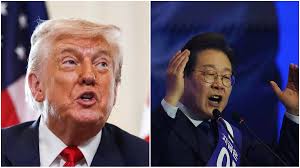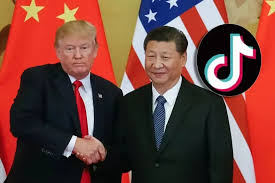United States President Donald Trump has announced a new trade deal with South Korea, just before his August 1 deadline to impose higher tariffs on several countries. Under this new deal, South Korean goods will face a 15% tariff, while U.S. exports to South Korea will not face any tariffs.
Trump called the deal “full and complete” and made the announcement on his Truth Social platform. He also shared updates on trade talks with Brazil and India.
The agreement with South Korea is one of several trade deals Trump has finalized recently, including ones with the European Union, Japan, the UK, Indonesia, Vietnam, and the Philippines.
Key Points of the Deal, includes, Vehicles from South Korea will face a 15% U.S. tariff, down from a previous 25%. This is a win for South Korea’s auto industry.
Steel, aluminum, and copper tariffs remain in place, which is a blow to South Korea’s metal exports.
South Korea refused to open its rice and beef markets further to U.S. imports, which could have upset South Korean farmers.
$350 billion in investments will be made by South Korea into U.S.-owned or controlled businesses.
South Korea will also buy $100 billion worth of U.S. liquefied natural gas and other energy products.
Additional investment plans by South Korea will be announced during South Korean President Lee Jae-myung’s visit to the White House in the next two weeks.
“South Korea will be completely open to trade with the United States and will accept American products, including cars, trucks, and agricultural goods,” President Trump said.
President Lee Jae-myung, who took office in June after political turmoil in South Korea, said the deal:
“Eliminates uncertainties” and helps South Korea remain competitive while strengthening U.S.-Korea industrial cooperation.
Lee described the $350 billion as a fund to support South Korean companies in the U.S., particularly in semiconductors, shipbuilding, batteries, biotechnology, and energy.
Market Reaction, includes, South Korea’s stock market index KOSPI rose slightly but later dropped. And Shares of Hyundai and Kia fell sharply, down 3.5% and 6% respectively.
Economist Kathleen Oh from Morgan Stanley commented:



